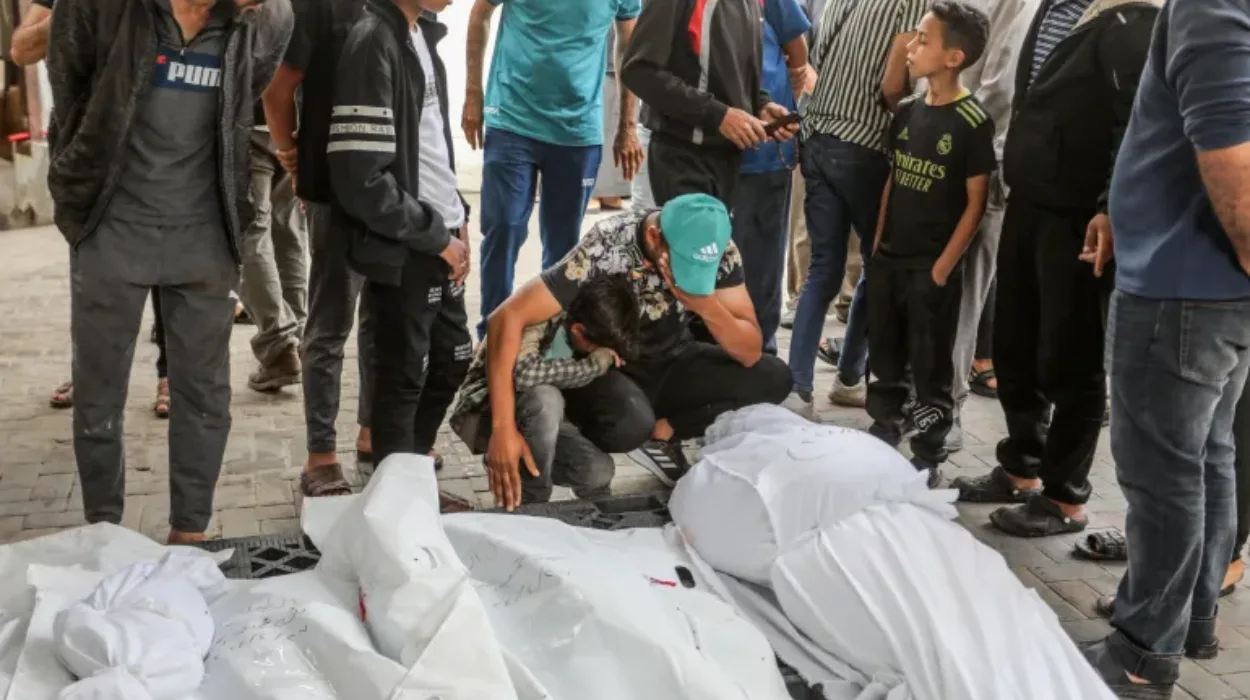A senior Hamas delegation is traveling to Egypt for negotiations aimed at pausing or potentially ending Israel’s military operations in Gaza, even as a ground invasion of Rafah in southern Gaza appears imminent.
Led by Khalil al-Hayya, the deputy head of Hamas in Gaza, the delegation will deliver its response to Israel’s latest proposals during the Cairo talks, which are mediated by Qatar and the United States.
Here’s an overview of the situation:
What’s Happened So Far?
Hamas and Israeli officials have been engaged in indirect negotiations throughout April, but little progress has been made. Talks in Cairo on April 7 discussed a potential three-stage agreement involving prisoner exchanges and a long-term ceasefire. However, while Egyptian sources reported some progress, Hamas did not agree with that assessment.
Israel also proposed that an Arab force temporarily oversee security in Gaza, a suggestion rejected by Hamas. The group remains steadfast on several demands: a permanent ceasefire, Israeli troop withdrawal from Gaza, unrestricted return of displaced Palestinians, increased aid access, and the start of Gaza’s reconstruction.
The Latest Truce Proposal
Hamas indicated its willingness to release Israeli captives if a permanent ceasefire is reached. Egypt, Qatar, and the US are trying to restart negotiations, and Hamas has recently received a new proposal from Israel.
According to sources, the latest proposal involves a phased release of captives, starting with 33 women, children, and elderly captives, in exchange for Palestinian prisoners. Israel may also allow displaced Palestinians to return to northern and central Gaza and consider withdrawing troops.
Ground Invasion Threat and Diplomatic Pressure
There is increasing urgency as Israel signals a potential ground invasion of Rafah, where 1.5 million displaced Palestinians are currently located. Israel’s Foreign Minister, Israel Katz, said that the Rafah offensive could be suspended if the talks in Cairo result in an agreement.
Meanwhile, Qatari and US officials have called for more serious efforts in ceasefire negotiations, while Palestinian Authority President Mahmoud Abbas has warned that only the US can stop an Israeli assault on Rafah.
Divisions Within Israel’s Government
Israeli Prime Minister Benjamin Netanyahu faces internal pressure, with hardline ministers threatening to bring down his government if any truce is seen as a concession to Hamas. However, other key officials, like Benny Gantz and opposition leader Yair Lapid, support a deal focused on the release of Israeli captives.
The outcome of these talks remains uncertain, but the stakes are high for both sides, with potential consequences for the region and Israel’s political stability.


